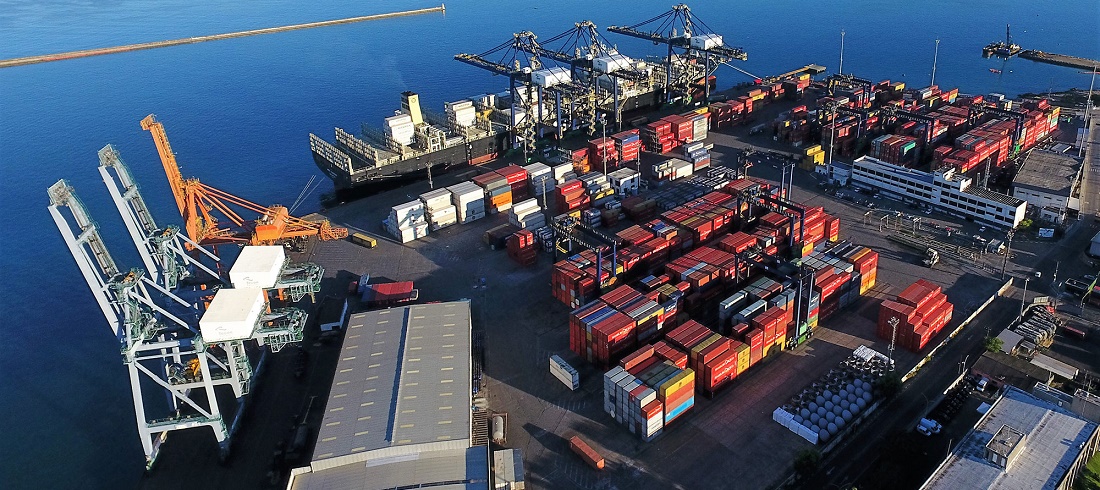
Bahian companies to resume paying cargo-scanning fee
Jan, 05, 2021 Posted by Ruth HollardWeek 202101
The Tecon Salvador container terminal managed to overturn in the Federal Court of Bahia an injunction obtained by USUPORT (the association of Bahian port users) against the fee charged for scanning cargo, a non-invasive inspection determined by the Federal Revenue Service. The decision was granted by Judge Ávio Mozar José Ferraz de Novaes, of the 12th Federal Civil Court of the State, in a reconsideration request.
The magistrate understood that Normative Instruction 680, issued by the Brazilian IRS in 2006, which, among other things, exempted importers from charging the fee, could be applied to the case. It considered the body’s subsequent ruling – Ordinance No. 3,518, of 2011, as amended by Ordinance No. 1,001, of 2014 – whereby the acquisition, maintenance, and operation of scanners should be the responsibility of the enclosures or bonded places themselves.
According to the judge, these new responsibilities led the terminals to charge for services, under penalty of imbalance in concession contracts. “If that were not the case, it seems to me that we would be facing a possible violation of the Concessions Law (Leinº 8.987 / 95)”, it says in the decision (process nº 1040602-44.2020.4.01.3300).
For him, scanning could only be included in the paid service package for cargo handling – the so-called box rate – if it were carried out, “indistinctly”, on all loads. “This requirement can be mitigated, for example, when the bonded warehouse operates with a load that allows direct visual inspection or otherwise,” he says.
Demir Lourenço, executive director of Tecon Salvador, says that the decision reinforces the terminal’s confidence in the regularity of the collection. According to him, ANTAQ (the national waterway transport agency), in an administrative decision of 2019, recognized that non-invasive inspection of containers generates costs and that they must be remunerated. “The matter in question should not even be subject to controversy since it is inserted in a regulated environment”, he says.
USUPORt has already appealed the decision. In the request, it states that Normative Instruction No. 680, of 2006, is in force, that one cannot speak of imbalance in concession contracts, and that the cost of acquisition and operation of scanners must be paid for by FUNDAF (the special fund for the development and modernization of supervisory board activities).
“There is a legal source of funding for the inspection activity that does not imply a disproportionate and illegal burden on those who move the national economy,” says Fernando Antonio da Silva Neves, from the office of Fernando Neves Advogados e Consultores, which defends USUPORT.
The tariff started to be charged in the country in 2012, according to ABRATEC (the Brazilian association of container terminals). For exporters and importers, it weighs in your pocket. The value is established by each port operator. It varies from R$ 80 to R$ 1,000 per unit, according to CNI (the national confederation of industries) which tried, through administrative means and without success, to contest the collection. And now he is considering going to the Judiciary.
In Bahia, there is a favorable precedent, while in the states of São Paulo and Espírito Santo, the few second instance decisions go against the companies. A company that operates in copper smelting and refining obtained a favorable sentence in the 13th Civil Court of Bahia.
Judge Carlos D’ávila Teixeira considered the tariff to be illegal and ordered reimbursement for the last five years. For him, it is a fee, a security measure arising from the police power of the Federal Revenue Service, and therefore, the charge should have been established by law.
Two other companies filed lawsuits against Tecon Salvador. But, according to the container terminal, requests for early protection were rejected by the court.
Source: Valor Econômico
-
Ports and Terminals
Jan, 23, 2024
0
São Paulo Pilots’ Timely Action Averts Incident At Port of Santos
-
Ports and Terminals
Feb, 01, 2022
0
The signing of a new work order kickstarts Suape’s master plan review
-
Secex Country Rankings
Dec, 04, 2018
0
Export revenues drop 28.3% in the first ten months of 2018
-
Shipping
Aug, 02, 2023
0
Waterway network breaks historic record for cargo handling and starts new expansion cycle


